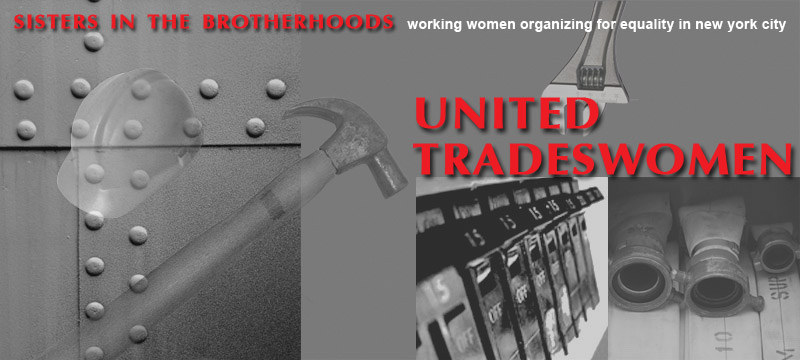 |
||||||
UT: 1981–1985 Immediately after the Reagan administration took office, the pace of attack against affirmative action accelerated. Women and minority organizations repeatedly had to make their case for jobs, to be included in groups considered for hiring and training, and to maintain the government’s enforcement obligation. Over time this process became increasingly contentious. Various forces were pushing UT women apart: burnout among the activist core; disagreements over issues of leadership; personality clashes; and difficulties caused by union corruption. Racism was a constant concern. Women of color bore a double burden as they entered the skilled trades—the tremendous resistance to hiring women and minorities. As time went on, what had been perceived as an external issue began to affect the internal dynamics with UT. Yvone Maitin experienced these tensions: The women of color felt that they didn’t have a real voice in it, that they were not able to be a part of the leadership, that the leadership was primarily white females. …United Tradeswomen, New York Tradeswomen, any of the groups I’ve been a part of, they are all microcosms of a larger society. …These are old, long-held views. They’re a part of this society. So we need to be more patient and more creative in how we’re going to confront these things. …I think that the internal contradictions within UT were not only on the side of the white women. It was multi-dimensional, and it was something that everybody needs to take responsibility for their part in it. It really is deep. …I think that was the thing that made it fall apart because the women of color were not coming. Little by little, they were not coming. And in the trades, quite frankly, a great majority of the women are women of color. Although President Reagan’s early and unrelenting attempts to whittle away the legal foundations of affirmative action met with mixed results, subsequent efforts successfully landed key blows. At the time of UT’s demise, the organization’s radical vision “for the guaranteed right of every woman to work in the job of her choice” remained a work in progress. Nevertheless, UT made a difference in the lives of its members. The group created a political voice and organized collective solutions to political problems, rather than leaving individuals to act in isolation. In 1983, UT established the first national conference of tradeswomen, and it produced pioneering work on sexual harassment in blue-collar jobs. Many former UT members kept the organization’s spirit alive in their subsequent ventures. For example, Maitin was active in founding another group, New York Tradeswomen. Other Sisters who changed careers retained a commitment to advocacy, justice, and collective organizing—in short, to making the world a better place, step by step. In a joint oral history interview, Lois Ross, Evan Ruderman, and Irene Soloway discuss UT's origins, activism, and struggles. | ||||||
| ||||||
| Copyright 1997-2012 Jane LaTour/Talking History | ||||||